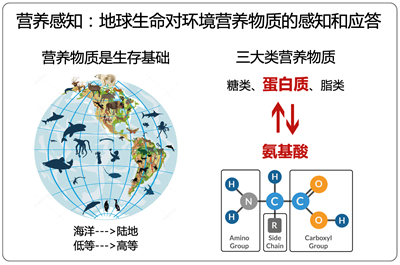Jie Chen, PhD
Principal Investigator, Assistant Professor
Dr. Jie Chen severs as an assistant professor and PhD student supervisor in School of Pharmaceutical Sciences at Tsinghua University. He is the principal investigator (director) of the ‘Amino Acid Sensing and Cancer Metabolism’ laboratory. Jie obtained his bachelor’s degree in biology from College of Life Sciences of Hunan Normal University in 2014, and obtained his PhD degree in molecular biology and biochemistry from Peking University in 2020. From 2020 to 2022 covid-19 outbreak, Jie remotely worked with his postdoctoral mentor Dr. William Kaelin on a cancer-related project, who is a Nobel Laureate in 2019 at Danner-Farber Cancer Institute, Harvard Medical School. In 2022, Dr. Jie Chen joined School of Pharmaceutical Sciences at Tsinghua University and started his independent research career. His laboratory mainly focuses on the study of ‘amino acid sensing and cancer metabolism’, and also aims to develop novel cancer drugs in future.
We focus on the study of ‘amino acid nutrient sensing (amino acid sensing)’, aiming to understand how organisms sense and respond to the availability of environmental nutrients–amino acids. Nutrients and oxygen are resources for oxidative phosphorylation, which generates energy to maintain survival and all animal activities. It is quite important for organisms to correctly sense nutrient and oxygen availability and modulate metabolic homeostasis correspondingly, otherwise diseases, such as cancers, could be developed. The mechanism of oxygen sensing has been discovered and awarded the Nobel Prize in 2019, while nutrient sensing mechanisms remain largely elusive.


For different kinds of nutrients, we have particular interest in amino acids, which are building blocks of proteins and are important for cell metabolism and growth. We aim to discover the intracellular receptor proteins that sense the amino acid levels (amino acid sensors), and reveal the amino acid sensing signaling pathways. Deregulation of amino acid sensing has been linked with human disorders, such as cancers. Hence, mechanism insights could provide new strategies and targets for cancer treatments. We employ interdisciplinary research tools including molecular biology, biochemistry, cellular biology, chemical biology and bioinformatics to investigate molecular mechanisms, and we also develop structural biology techniques. Besides, we apply model organisms, such as mice and nematodes, to study physiology and pathology.
In addition to amino acids, we have interest in several other types of nutrients and important clinical drugs, including: 1) lipids and their roles in cell growth control, 2) minerals and vitamins and their roles in cell growth control, 3) gut microbial metabolites and their roles in the modulation of host metabolism, 4) investigation of the intracellular targets of important clinical drugs.
1. Discovery of the leucine sensor SAR1B and its role in metabolism and cancer development (Nature 2021)
2. The role of ubiquitination mechanism in amino acid sensing signaling (Nature 2018)
3. The role of lysosome in the regulation of C. elegans lifespan
4. The role of EI24 in ER stress adaptation and cell apoptosis
2023 The National High Level Youth Talent Support Program
2022 Young Elite Scientists Sponsorship Program by CAST
2020 The Ray Wu Prize
2018 Best Ten Student Researchers of Peking University
2018 National Scholarship
1. Jie Chen*#, Yuhui Ou*, Rong Luo, Jie Wang, Dong Wang, Jialiang Guan, Yi Li, Peixue Xia, Peng R. Chen, Ying Liu#. SAR1B senses leucine levels to regulate mTORC1 signalling. Nature. 2021, 596(7871):281-284.
2. Jie Chen, Yuhui Ou, Yanyan Yang, Wen Li, Yuntao Xie, Ying Liu. KLHL22 activates amino-acid-dependent mTORC1 signaling to promote tumorigenesis and ageing. Nature. 2018, 557(7706):585-589.
3. Jie Chen*, Yuhui Ou*, Yi Li, Shumei Hu, Li-Wa Shao, Ying Liu. Metformin extends C. elegans lifespan through lysosomal pathway. eLife. 2017, 6:e31268.
4. Yiwei Xu*, Jie Chen*, Jianguo Chen, Junlin Teng. EI24 promotes cell adaption to ER stress by coordinating IRE1 signaling and calcium homeostasis. EMBO Rep. 2022, 23(3):e51679.